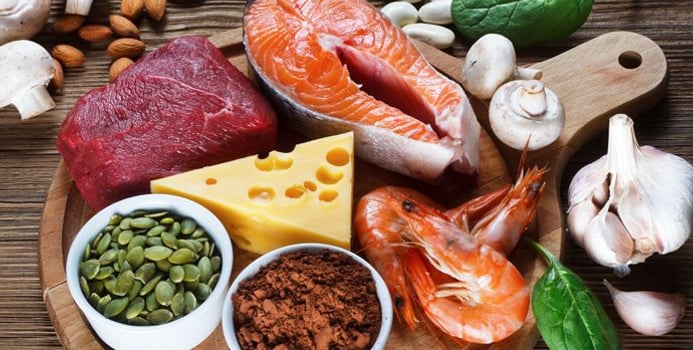If you’re feeling under the weather, then perhaps you need to take a zinc supplement! Why, you may ask? Well, although zinc is not a magical get-well remedy, it is a trace element that is essential to maintaining the proper growth of the body and is responsible for helping the immune system fight off viruses and bacteria.
The amount of zinc you need depends on your age, but the average adult woman only needs eight milligrams of zinc a day, while a man needs 11 milligrams, the National Institutes of Health reports. Zinc is found naturally in some foods, including oysters, crab, lobster, red meat, poultry, beans, and nuts, or it can be taken as a dietary supplement.
Yet despite needing so little, Women's Health reports that the importance of zinc should not be overlooked because a study published in the Comprehensive Reviews in Food Science and Food Safety claimed zinc is "one of the most important essential trace metals in human nutrition and lifestyle." In fact, zinc is responsible for multiple everyday functions in the body, and according to Medical News Today, it can help stimulate at least 100 enzymes.
Among the possible health benefits of zinc include assisting hormonal health and even fertility. Medical News Today reports that a Dutch study found subjects had “a higher sperm count after zinc sulfate and folic acid supplementation.” And for women, Dr. Axe notes that zinc helps with the creation and release of eggs from the ovaries, and is responsible for the production of estrogen and progesterone.
Zinc can also aid in the treatment of acne and deficit hyperactivity disorder (ADHD), as well as reduce the risk of inflammatory diseases, and prevent cellular damage in the retina.
Given the importance of zinc to our nutrition, it is unsurprising that a deficiency can have adverse effects, including making an individual more susceptible to illness (zinc has been found to reduce the duration of the common cold by 40 percent), causing stomach issues, preventing the healing of wounds, and affecting the production of vitamin A, Women's Health reports.
Zinc deficiency is actually common in the United States, and according to Dr. Axe, this happens when an individual does not eat enough food with zinc or has problems absorbing zinc — so perhaps it's time to eat more oysters.
[Image via Shutterstock]



